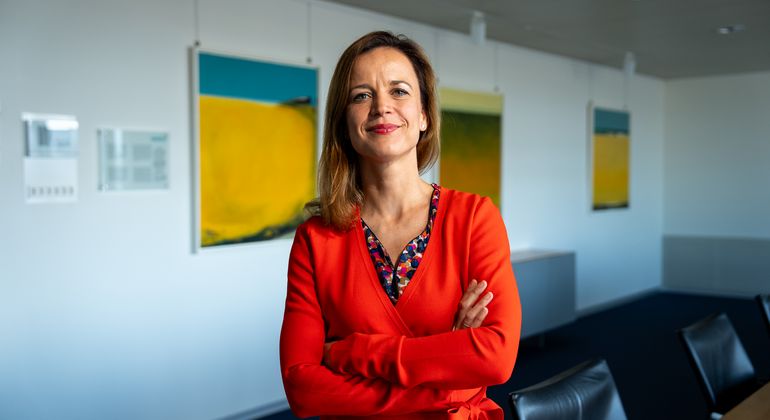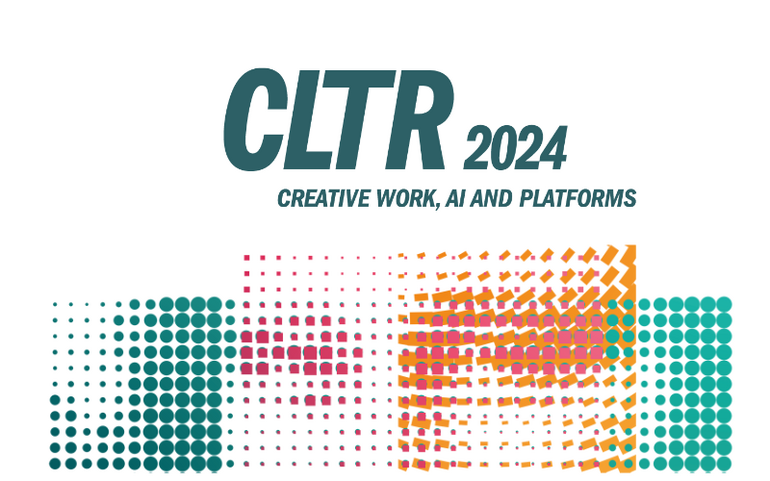Eva Pauline Bossow is a businesswoman and adviser with long-standing experience in the areas of the creative industry, digitalisation, innovation and entrepreneurship. She has worked as the Managing Director of the Zurich Centre for Creative Economies, a member of the Digital Council at the Zürcher Hochschule der Künste art school, and as Head of Communications and Marketing at the Zentrum Paul Klee and at the IT service provider adesso. Today, she supports organisations and start-ups with the focus ‘future of work’ as a strategist and member of various committees. She will be the moderator for CLTR 2024.
For IP professionals
This is the portal for professionals working in the field of intellectual property. Here you'll find direct access to all necessary resources.
Quick links
Creatives should actively help shape the changes in their sector
Eva Pauline Bossow thinks that players in the creative sector should shape the changes in their area characterised by artificial intelligence themselves. As a consultant with long-standing experience in the sector, she’s urging creative professionals to explore AI and its effects in depth and also to directly express their opinions on it. She hopes that by moderating the public event CLTR 2024 she’ll be able to lend some impetus to such activity.

Does AI pose a threat for artistic and cultural professionals or is it seen more as an opportunity?
Yes and yes. The answer depends on various factors, such as the artistic area. A game designer is more likely to use AI applications and view them as an opportunity than a violinist. You could say that the more analogue an artistic practice is, the greater the effort required to adopt AI. But that doesn’t have to be the case. Many musicians have been working with AI tools in production, marketing and composition for a long time. Different applications are used at different stages of the value chain, depending partly on artists’ access to and understanding of the technologies.
Artistic and cultural professionals may feel threatened above all by the prospect of AI creations replacing artistic ones. And that’s precisely why it’s so important for them to investigate AI – to recognise the possibilities it offers and use them for themselves, to address ethical issues and to consider intellectual property protection. They should focus on opportunities and be equally proactive and critical.
To what extent does teaching, particularly in universities, rely on AI today and is it still possible without it?
That varies a lot. The drivers of AI development and deployment are undoubtedly companies that are pushing the use of AI tools to boost efficiency and performance. Universities follow a different kind of logic and are slower here – except in the technical subjects. There are now courses of study and modules that deal with the application of AI in the arts, such as digital art, music technology and media production. Cross-the-board inclusion of AI has yet to come, but it’s important for the reasons I mentioned before.
I would like those involved in the cultural sector to have a greater influence on technological change, to explore it with artistic methods and approaches, and to shape the changes in their own disciplines themselves. This requires knowledge and expertise, but also an open mind, which must be encouraged at universities.
Why do you think it’s important that we as a society talk about how to deal with AI and the platform economy?
Because they’re already profoundly influencing our everyday (working) lives and substantially affecting the economy, the labour market, democracy and culture. Most of us are fully unaware of the extent to which they are impacting us. However, to discuss AI and the platform economy, we first need to know more about them. We must understand what AI means for us in 2024, where it’s already being used and what developments can be expected. Only then can we move on to the next step – discussing what aspects are useful, desirable and difficult. And taking action.
For a long time now, AI has been increasingly integrated into the platform economy, a business model in which digital platforms act as intermediaries between providers and users of services and products. As their success and value depend on the collection and evaluation of large data volumes – the more, the better – digital platforms deploy AI to further optimise their services and make more personalised offers. In many cases, just a few platforms dominate the market. This raises questions about competition, data protection and working conditions for platform workers.
These developments require a broad societal debate to prevent abuse and ensure that democratic values are upheld. But we also need to explore AI so that we can all learn how to use it, acquire digital literacy and shape change together with future generations.

